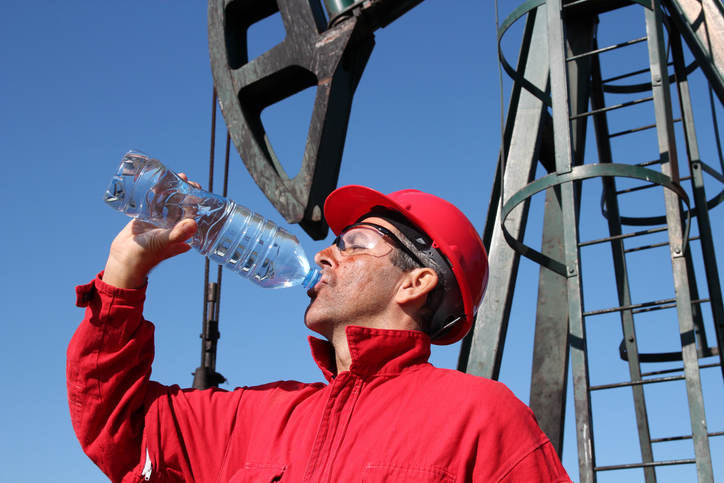
Local Rules In Texas Requiring Water Breaks For Construction Workers Soon To Be Nullified
Climate change has been showing its ugly effects in different parts of the world, and Texas is no exception. In the past few weeks, parts of Texas witnessed triple-digit temperatures, leaving residents all exhausted due to the sweat. On one hand, weather officials are urging Texans to stay indoors and hydrate themselves as much as possible, Greg Abbott (Governor of Texas) gave his approval to cancel rules mandating water breaks for construction workers.
Abbott gave his final assent to House Bill 2127 in this year’s legislative session, and the same will come into effect on September 1st, 2023. Once this law comes into effect, ordinances enacted in Austin and Dallas in 2010 and 2015, respectively, will be nullified. These ordinances mandated the establishment of minimum breaks in construction workplaces. Every employer had to ensure the workers had 10-minute water breaks every four hours to keep themselves hydrated and protected from the heat.
Deaths of workers due to heat were one of the main reasons why this law was enacted in the first place. In fact, Texas witnessed the highest number of deaths due to soaring temperatures. The US Bureau of Labor Statistics stated that Texas reported 42 deaths between the years 2011 and 2021. The primary cause of these deaths was environmental heat exposure.
Workers Unions, on the other hand, say that these numbers do not bring forth the actual gravity of the problem of heat-related deaths. According to them, most heat-related deaths are often recorded under different causes of injury. Temperatures in Texas are expected to rise over 100 degrees in several parts in the coming days. Apart from deaths of workers, Texas also reports deaths of many other people due to heatwaves – just last year, there were 279 heat-related deaths of citizens. The withdrawal of mandated water breaks at such a time has taken aback Workers’ Unions.
Builders associations, however, have a different perspective. They believe that OSHA guidelines already provide for water breaks, and there is no requirement for separate local legislation for the imposition of water breaks during work hours. Geoffrey Tahuahua, President of Associated Builders and Contractors of Texas, stated that these local ordinances are rigid, unlike the OSHA guidelines. The latter gives employers the flexibility to arrange water breaks according to individual site conditions.
Tahuahua stated that ”They try to make one size fits all, and that is not how it should work. These ordinances just add confusion and encourage people to do the minimum instead of doing the right thing.”
David Michaels, former head of OSHA (2009-2017), has a completely different view. Michaels, who is now a professor at the George Washington University School of Public Health, says that“Under OSHA law, it is employers who are responsible to make sure workers are safe. And we have compelling evidence that they are doing a very poor job because many workers are injured on the job, especially in Texas.” He added that OSHA does not list a national standard for heat-related illnesses and is of the opinion that a national standard would ideally be a better solution to the problem. And since there are no national standards as of now, local ordinances (that have been just repealed) had to be in place to ensure the protection of workers’ rights.
During the regular session, two bills were proposed to ensure better working conditions for workers. Firstly, we have House Bill 495 put forth by Thresa Meza, which seeks the establishment of 10-minute mandatory breaks for workers working for a government entity. The second bill, House Bill 4673, authored by Maria Luisa Flores, calls for the setting up of a statewide advisory board to establish standards to prevent heat-related illnesses in the first place. It also proposes to set penalties for employers who do not follow the issued guidelines. However, both these bills did not make it through the legislative process.
Daniela Hernandez, the state legislative coordinator for the Workers Defense Project, stated, “Without an ordinance or a law, there is no safeguard. There is no guarantee that the worker will have those water breaks. We will keep fighting.”
Until then, such cases of deaths caused due to non-compliance with issued guidelines need to be reported. If you require any assistance for the same, feel free to reach out to Texas personal injury lawyers for better guidance.


